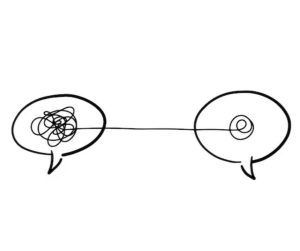Major Schools of Thought In Psychology: Every academic field, from sociology and theology to literature and history, includes rival ideas or schools of thought that offer different viewpoints on the subject. The argument over how to categorize and explain the human mind and behavior started when psychology first emerged as a science distinct from biology and philosophy.
There are many different themes in the large science of psychology. It translates as the “study of the mind.” Although it includes thousands of ideas and sub-theories, the six major schools of thought are frequently the starting point for people who are new to psychology. A school of thought is a collection of individuals who share a common ideology, movement, or intellectual perspective. It ties together and distinguishes those who share a particular subject or field of study’s traditions, customs, or practices. Yet, early psychologists developed several theories and schools of thought that followed their research and study methods.
The main theories in psychology are represented by the several schools of psychology. In this article, some of the important schools of thought that have shaped our understanding of psychology are covered.
Recommended: Major Schools of Thought In Philosophy
Top 7 Major Schools of Thought In Psychology
1. Structuralism: The first psychological school of thought was structuralism. Wilhelm Wundt, a German academic, philosopher, and physiologist, established it. Although Wundt’s work laid the groundwork for structuralism, Edward B. Titchener, one of his students, founded the school of thought in the 1890s.

The term “structuralism” refers to the study of the structure of the mind, which is the goal of the movement. Wundt used introspection as his main method to try to comprehend the structure of the mind. To examine events or experiences, the smallest feasible components were dissected so that the researcher could comprehend the contents of consciousness.
The subjective aspect of introspection was ultimately criticized, even though this school of thinking at the time advanced psychology. It is uncommon for two people to perceive stimulation in the same way.
2. Functionalism: The dominant structuralism of late 19th-century psychology was opposed by the concept of functionalism. The primary structuralist Edward Titchener provided psychology with its original definition as a discipline that studies mental experience and awareness through trained introspection.

The concept of functional psychology is credited to William James. But he would not identify as a functionalist, nor did he genuinely approve of the way science was organized into schools. The prominent proponents of functionalism at the University of Chicago were John Dewey, George Herbert Mead, Harvey A. Carr, and particularly James Rowland Angell.
The psychological theory that has the most sway today is functionalism. Psychological functionalism seeks to explain thoughts and their effects without seeking to understand underlying causes. Functionalists assert that since the mind functions similarly to a computer, it is important to concentrate on the software, or what the mind does, rather than the hardware, which comprises the fundamental how and why to comprehend how it operates.
Also see: Schools of thought in Law
3. Psychoanalysis: Sigmund Freud, whose work was influenced in part by the clinical work of Josef Breuer and others, founded the field in the early 1890s. Up until his passing in 1939, Freud developed and improved psychoanalysis as a theory and practice.

To understand human behavior, it concentrated on how the unconscious mind functions. According to this school of thought, everyone has unconscious memories, desires, and thoughts that lead to repressed emotions. To achieve catharsis, psychoanalysis seeks to make these unconscious components conscious.
According to Freud, the core of human growth is the want to seek pleasure, which he classified as having a sexual aspect. Freud believed that crucial moments in a child’s discovery of this pleasure—acts like breastfeeding and defecating—were crucial to that child’s growth. By addressing these stages, he managed anomalous behavior in adulthood.
Recommended: Countries With the Best Doctors in the World 2024: Top 16
4. Behaviorism: John B. Watson founded behaviorism in 1924. According to behaviorism, a subject’s psychological makeup can be better predicted by their behavior than by their unique ideas or thoughts. It gives experience and one’s surroundings priority over internal or subconscious forces.

According to this school of thought, operant, and classical conditioning are the two primary methods used to teach behavior. In classical conditioning, behavior is produced by pairing two stimuli—a conditioned stimulus and an unrelated unconditioned stimulus.
The secret of psychology, according to behaviorists, can be found in behavior rather than in seeking to understand how the mind functions internally. As the results of experiments in psychology may be duplicated, they are as open to experimentation as those in other scientific fields.
Recommended: How To Find And Choose Good Research Project Topics
5. Gestalt Psychology: Gestalt psychology is a branch of psychology that is predicated on the notion that humans perceive things as cohesive wholes. In response to structuralism’s molecular psychology, this method of psychology emerged in Germany and Austria in the late 19th century. Kurt Koffka, Wolfgang Köhler, and Max Wertheimer were among the thinkers affiliated with the Gestalt school of thought.
Gestalt psychologists considered that you must look at the entire experience rather than dissect thoughts and actions into their tiniest components. Understanding optical phenomena, such as optical illusions, is an example of Gestalt thinking.
6. Cognitive Psychology: The branch of psychology known as cognitive psychology focuses on the study of mental processes, such as how people think, perceive, remember, and learn. This area of psychology is connected to other fields including neuroscience, philosophy, and linguistics because it is a part of the broader subject of cognitive science.

In the 1950s, cognitive psychology evolved in part as a reaction to behaviorism. Examples of notions that emerged from the cognitive school of thinking include Jean Piaget’s thesis of the “phases of cognitive development,” which stated that children went through a series of progressive stages of intellectual development, Lev Vygotsky’s sociocultural theory, which focuses on how social and cultural influences interact to influence cognitive development, and the information processing theory, which contends that the mind processes and interprets data about the outside world similar to a computer.
Recommended: Major Schools Of Thought In Philosophy
7. Associationism: Schools of thought that follow associationism include structuralism, behaviorism, gestalt, and psychoanalysis in addition to functionalism. Experts from this psychology school conducted a scientific investigation of education. The term “association” is used in this school of psychology to define the connection between our actions and beliefs that is based on prior experiences.
The emphasis in this perspective is very much on prior experiences. Aristotle, Locke Hobbes, George Berkeley, and Hume all supported this school of psychology. More recently, supporters of the associationism school of thought have been identified as Muller, Morgan, Pavlov, and B. F. Skinner. A study by Hermann Ebbinghaus demonstrated that while important words are remembered quickly due to the harmony between them, meaningless phrases are remembered slowly.
Recommended: Differences Between Parliamentary and Presidential System
Conclusion
Psychology is complex, just like people are complex. The subject of psychology evolved to have six contemporary orientations from the early scientific perspectives of Functionalism and Structuralism. These are the main schools of psychology, in conclusion. Each school of thought has an impact on the times in which it was developed. Every school of thinking has a place and a place in the clientele it serves. While some schools of thought have vanished into oblivion, all have had an impact on how psychology has evolved.
Behaviorism and cognitive psychology, two of psychology’s more modern schools, continue to have a significant influence. Nowadays, a lot of psychologists do not exclusively adhere to one school of thinking. Instead, they might adopt a more eclectic strategy, including numerous viewpoints and theoretical philosophies.

Edeh Samuel Chukwuemeka, ACMC, is a lawyer and a certified mediator/conciliator in Nigeria. He is also a developer with knowledge in various programming languages. Samuel is determined to leverage his skills in technology, SEO, and legal practice to revolutionize the legal profession worldwide by creating web and mobile applications that simplify legal research. Sam is also passionate about educating and providing valuable information to people.
